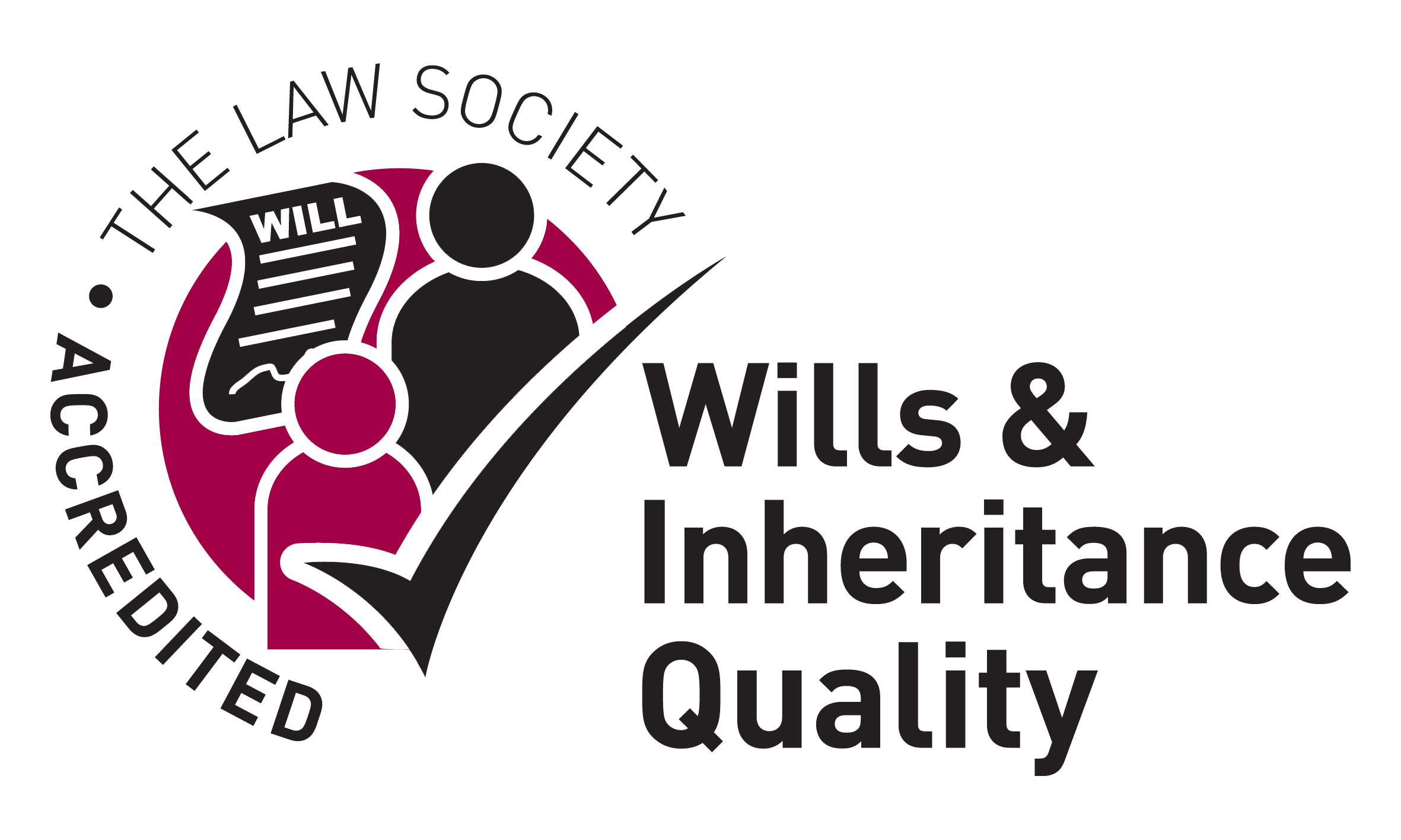Morr & Co Solicitors
Intestacy
The rules of intestacy are applied when someone dies without a valid will.
When someone dies without a valid Will they are said to have died intestate and their estate passes to specific family members in a prescribed order according to the rules of intestacy.
The intestacy rules as set out in UK law determine how the assets belonging to someone who has died without a valid Will are distributed, as well as who has the right to deal with their estate.
These rules allocate the estate according to the order of entitlement set out in the relevant legislation (intestate succession). The succession starts with their spouse or civil partner and is followed by any children. Therefore, in the case of an intestate estate, the outcome depends on which family members have survived you and where they feature in the order of entitlement.
Administering an intestate estate can often be complicated. Our team has a great deal of experience of guiding clients through the process, to ensure that the assets belonging to the person who has died are distributed properly.
Who registers the death and arranges the funeral?
Do I need to use a solicitor?
Will I need probate?
Will there still be inheritance tax to pay?
Who will inherit the estate?
My partner and I lived together but never married. Will I still inherit the house?
What about children under 18?
Who registers the death and arranges the funeral?
This will depend on the deceased’s family circumstances, and whether they made a valid Will.
When someone leaves a Will, the appointed executor(s) have responsibility for dealing with these arrangements.
In the case of intestacy, it is not as easy to determine who has the authority to deal with such matters.
If the deceased is survived by a spouse or civil partner who still has mental capacity then usually they will register the death and make the necessary arrangements with the funeral director. In cases where the deceased is survived by adult children as well as a spouse, it could be any of these individuals.
If the deceased is survived by a spouse who lacks mental capacity and there are no adult children, then if there is a deputy or attorney appointed (either for the deceased or the surviving spouse), they will usually become involved.
Where the question of who registers the death and attends to the funeral arrangements becomes more difficult to answer is if the deceased leaves no close family. In such cases it is likely that a friend or carer will be the person called upon to deal with the necessary arrangements and, in turn, may become concerned about who is going to pay the funeral costs.
Once the death has been registered and the death certificate issued, all the banks, building societies and other asset holders will need to be notified so that the deceased’s accounts can be frozen. After this, it is possible for the banks to release funds directly to the funeral director to pay their invoice, assuming of course that there are sufficient funds to do so. If there are insufficient funds in the deceased’s accounts to pay the funeral costs, then the person who arranged the funeral will have to settle the invoice and wait to be reimbursed from the estate once probate has been granted and the funds can be released. This process can often take some time, especially if the estate has a tax liability or there are assets in the estate that are of high-value, unusual in nature or located overseas.
Do I need to use a solicitor to deal with an intestate estate?
Whilst it is not a legal requirement to engage the services of a solicitor, dealing with an intestate estate can be quite complicated. There are often misconceptions about who inherits an intestate estate, particularly if the person who has died had been in a long-term relationship, and perhaps even had children from this relationship, but was never married to their partner. There are special rules that govern who can inherit, what they may inherit, and when they are entitled to receive their inheritance.
Any number of issues might arise depending on the deceased’s family circumstances and the size of their estate, which may include for example having to deal with a liability to inheritance tax, or the establishment of a trust for a child who is under 18.
It is recommended that legal advice is taken at the outset to minimise the risk of a poorly administered estate or further complications arising several months (or indeed years) after the death.
Will I need probate for an intestate estate?
Probate is only granted for estates where the deceased left a valid Will. There is an equivalent for intestate estates, which is a Grant of Letters of Administration. Until a Grant of Letters of Administration is made, no person has the legal authority to deal with the deceased’s assets at all, regardless of whether they are a surviving spouse, child or other relative.
Letters of Administration can only be taken out by specific people, in a specific order. The first in order of priority is the surviving spouse or civil partner, who may be the only person entitled to inherit the estate. If they are sharing the estate with adult children and do not wish to take out the Grant, an adult child could make the application instead but they would need to provide an explanation as to why the surviving spouse or civil partner has chosen not to do so.
Letters of Administration will always be required in cases where the deceased owned shares, or where they owned a property either in their sole name or with another person as ‘tenants in common’ (which is different to owning it as ‘joint tenants’), or for certain other assets (typically larger sums held in banks, building societies or with National Savings & Investments).
Will there still be inheritance tax to pay?
This will depend on the deceased’s financial and family circumstances. Inheritance tax is payable on any estate (whether the deceased left a Will or not) which is worth in excess of the ‘nil rate band’ allowance. Whether an intestate estate will benefit from any exemptions or allowances can only be determined once the size of the estate and the entitled beneficiaries have been established. To minimise the exposure of your estate to inheritance tax, read about how we can help with tax planning.
Under current legislation, surviving spouses or civil partners (not cohabitees) of a person who dies intestate will only inherit the whole estate if the deceased left no children, so it is entirely possible that an inheritance tax liability will arise. Some or all of that tax will have to be paid before a Grant of Letters of Representation can be issued – in other words, from funds other than those within the estate itself.
Who will inherit the estate?
A common assumption is that the surviving spouse or civil partner will automatically inherit the whole estate, or that the Crown will take it all (an assumption that is driven by television programmes such as “Heir Hunters”). The identity of the beneficiaries depends on the deceased’s family circumstances. Was the deceased married? Or divorced? Did they have children, or grandchildren? Or is it necessary to look deeper into the family tree in order to find a surviving relative who may be entitled to a share of the estate despite having never met the deceased or possibly even known that they were related to one another. This is why making a Will is important, as it is likely that the deceased would have preferred for someone they knew or an organisation that they supported to inherit their estate instead of a stranger.
My partner and I lived together but never married. Will I still inherit the house on their death?
This issue is affecting more and more people as family relationships evolve and change. With divorce rates increasing and blended families becoming commonplace, but marriage and civil partnership numbers falling, this question will arise frequently.
If you and your partner own your property as ‘joint tenants’, when the first of you dies the survivor automatically becomes the owner of the whole property. This process is known as ‘survivorship’. However, if you own the property as ‘tenants in common’ (either in equal shares or unequal shares), then your partner’s share of the property does not automatically pass to you when they die but instead it falls into their estate. If you never married and your partner did not leave a valid Will, their share of the property will pass either to a surviving spouse (if they were separated but not legally divorced), to their children if they have any, or possibly to more distant relatives.
In summary, cohabitees are not entitled to inherit anything on an intestate’s death under current UK law. The only exceptions to this are jointly owned assets passing by survivorship. It is irrelevant how long they have been in a relationship, or what their intentions or wishes were before they died.
What about children under 18?
If a person dies intestate leaving children under 18, their surviving parent (assuming that there is one) automatically becomes their legal guardian. This can be very difficult and unsettling for stepparents and their stepchildren alike, especially if they had been living with their deceased parent and stepparent.
Moreover, if the deceased was divorced from their first spouse and remarried, and they had minor children from either (or both) marriages, and the value of their estate is more than £322,000, then some of the estate will have to be held in trust for the minor children until they reach the age of 18. This can often lead to tensions within the family, which could potentially last for a number of years if the children are very young when their parent dies.
Recent Private ClientMorr & Co provided exceptional service - they went the extra mile for me. They acted throughout with exemplary efficiency and kindness.


































